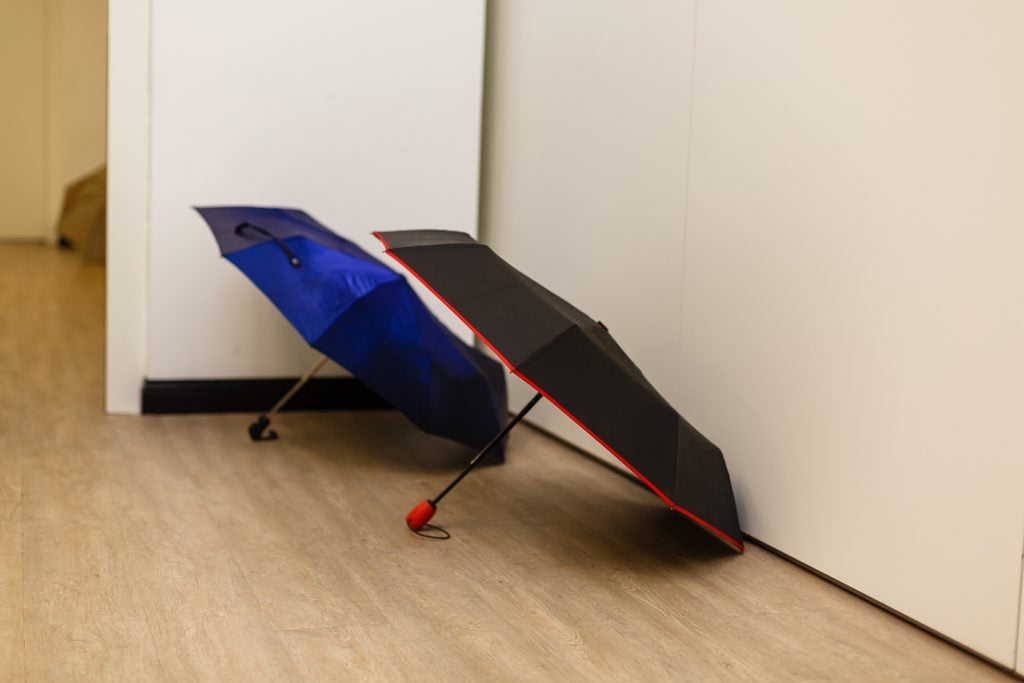Opening Umbrellas Inside: Why Is It Considered Bad Luck?
Updated: Nov. 10, 2022

It is because if you do it in my presence and expose me to your secondhand bad luck we are going to have a problem, bucko.
On a good day, I like to consider myself a logical person—rational even, if I may go so far. However, I also put the “super” in “superstitious” and have not walked under a ladder, stepped on a crack, pocketed a tails-up coin, or let an upside-down horseshoe go uncorrected ever if memory serves, and if I have, I don’t want to know about it. I won’t even leave the television volume on 13. One time, I almost ended an Uber ride early because a black cat crossed the street ahead of us, and I just knew I was now the passenger of a hexed Toyota Corolla. So, as you can imagine, opening an umbrella indoors is absolutely off the table.
First of all, I have neither the foresight nor sense to, you know, possess an umbrella, and second of all, with that umbrella, you also open a Pandora’s box of bad juju, ill fortune, and discontented vibes. I even advise companions with whom I share public space against it: I will not go down in a freak elevator accident because you didn’t want to wait until we got to the curb to open your umbrella, and will employ a vise-like grip to ensure that canopy does not live to see the fluorescent light of indoors. Like I said, logical—rational, even. (You already know my house is devoid of these 9 unlucky things to never keep in your home.)
Where does this superstition come from?
It’s difficult to pinpoint the exact invention of the umbrella, but the Ancient Egyptians are certainly responsible for an early version of it, as recovered art depicts priests and royalty using them for shade as early as 1200BC. Its roots in Egyptian civilization heed lots of speculation about the origins of this superstition: that an open umbrella indoors and away from the sun angers the sun deity Ra, or that the peacock feather-parasols were meant to mimic the sky deity Nut and a person of non-nobility stepping under her shade was sacrilege. Both conjectures are largely unsubstantiated, but that still doesn’t mean you’ll catch me doing it. I do not need to antagonize a sun deity, just in case. This is the real reason you believe in superstitions—according to science. And if you’re in the market for a new one, here are the best umbrellas to keep you dry.
Truthfully, it’s probably not bad luck to open an umbrella indoors—it’s just annoying. With the debut of the Paragon umbrella in the mid-19th century, the British were introduced to the rendition of umbrellas that we’re most familiar with today: steel-ribbed canopies ejected at the command of a mechanism, intended to protect owners from the rain. They’re the kind that go from slim and portable to wide-berthing and hazardous very quickly, so the indoors’ compacted elbowroom and constitutional needlessness for shelter doesn’t make for a very umbrella-friendly environment. In Panati’s Extraordinary Origins of Everyday Things, scientist Charles Panati writes, “A rigidly spoked umbrella, opening suddenly in a small room, could seriously injure an adult or child, or shatter a frangible object. Thus, the superstition arose as a deterrent to opening umbrellas indoors.” Essentially, a fully extended umbrella is a menace in close-quarters, and if circulating a superstition prevents the practice, then let the wrath of Ra rain down with all the toxicity of a UV 11. May SPF 100 be with you all.